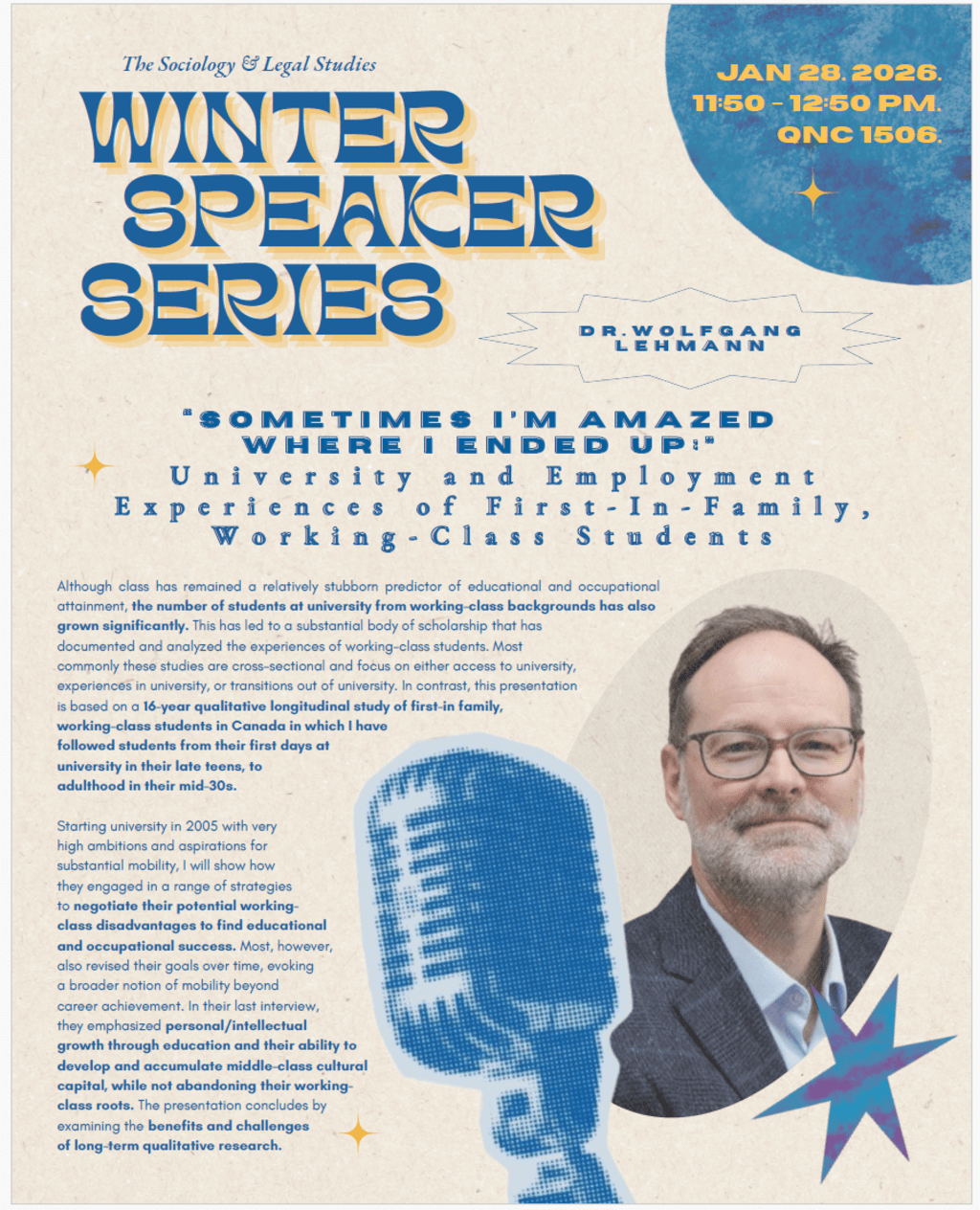The Sociology and Legal Studies Winter Speaker Series presents: Dr. Wolfgang Lehmann
“Sometimes I'm amazed where I ended up:” University and employment experiences of first-in-family, working-class students
Wednesday, Jan 28th | 11:50 am – 12:50 PM | LOCATION: QNC 1506





